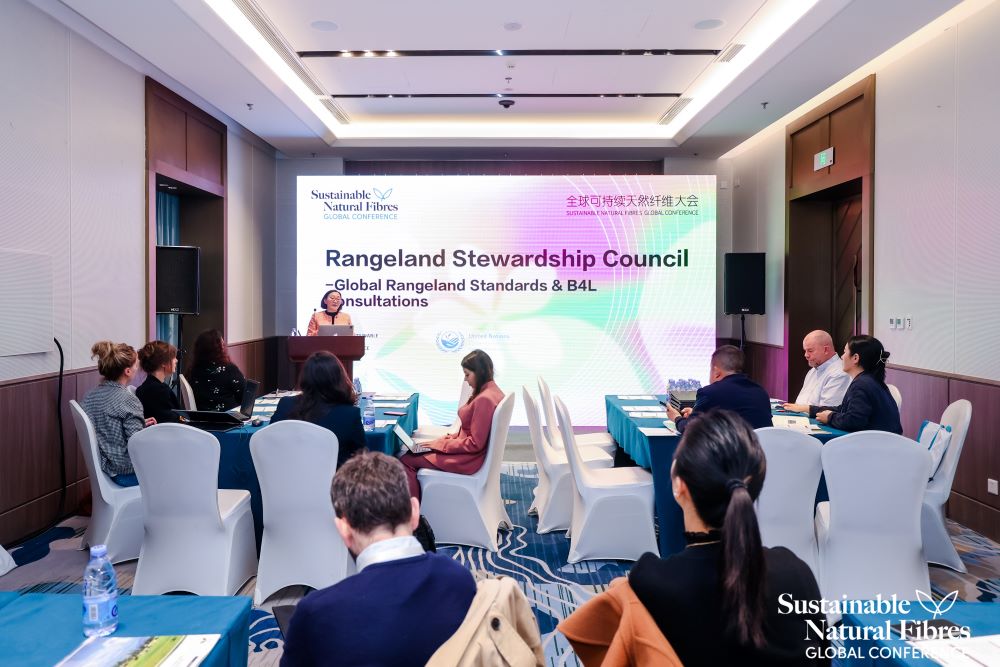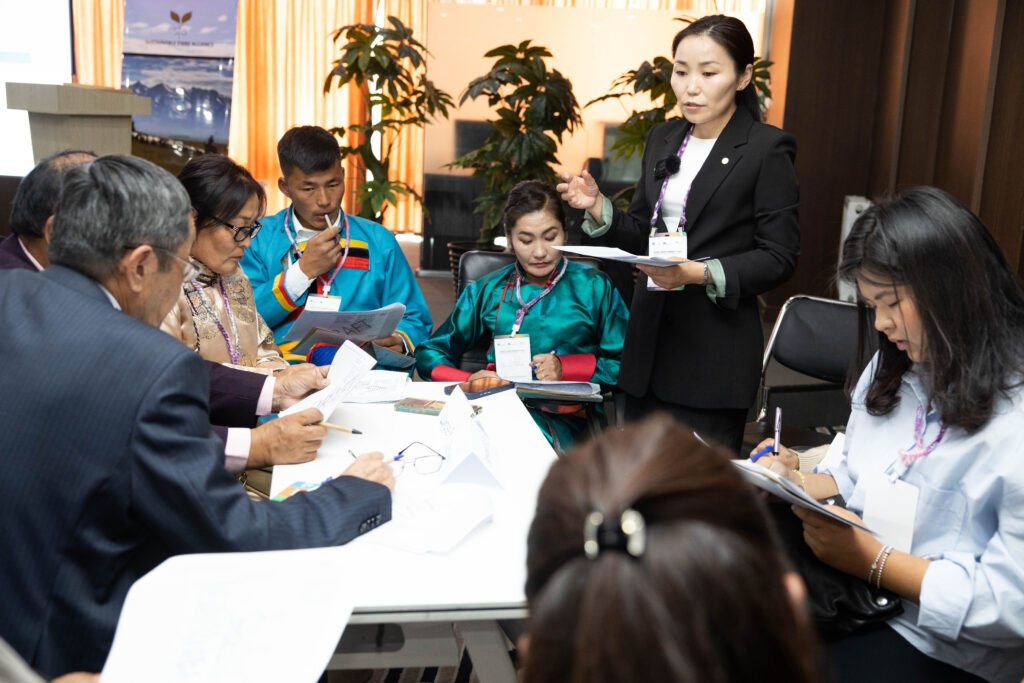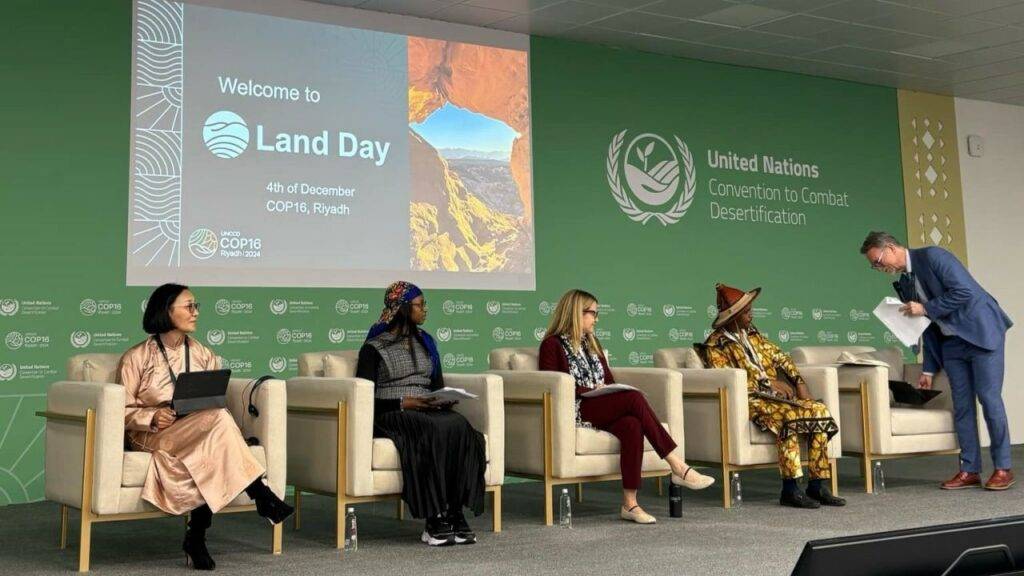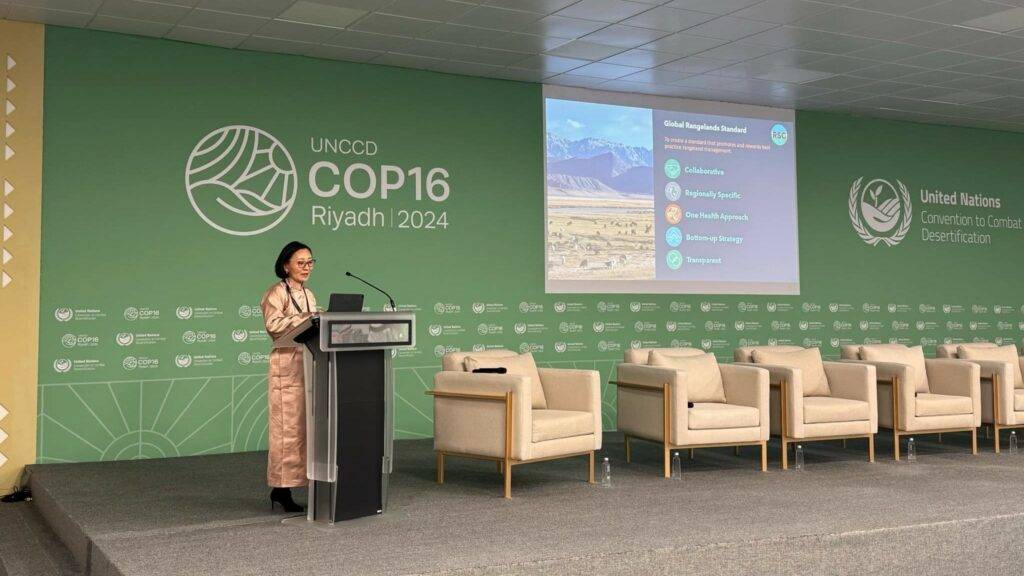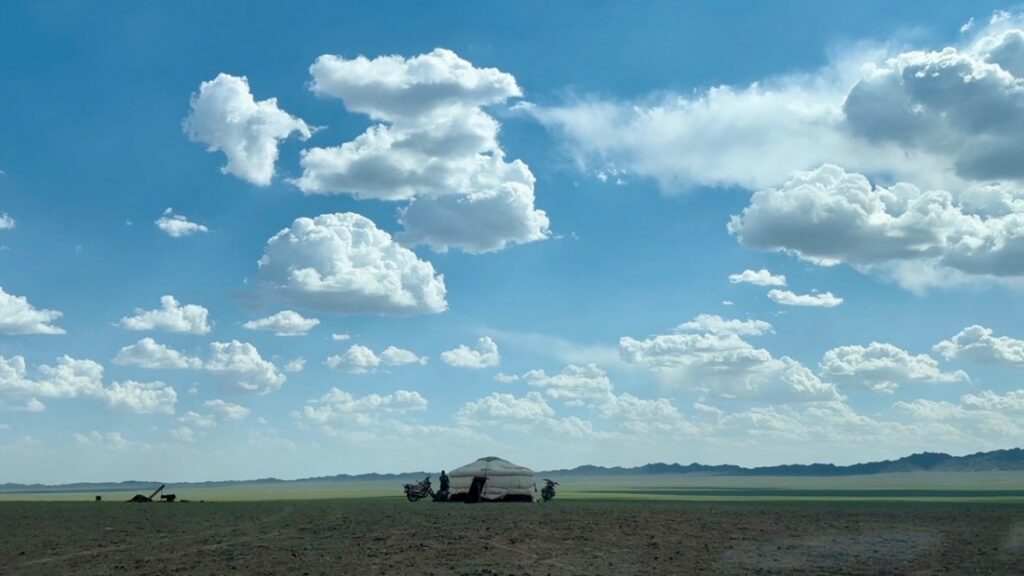A Year of Resilience & Progress Towards Sustainability
As we reach the end of 2024, it’s a moment to reflect on a year that has tested our resolve yet propelled significant progress in the sustainability of the natural fibre sector. Despite challenges from natural disasters to the acceleration of climate change impacts, the SFA continued to lead the charge in promoting resilient practices across the industry. Here are our key highlights from this transformative year.
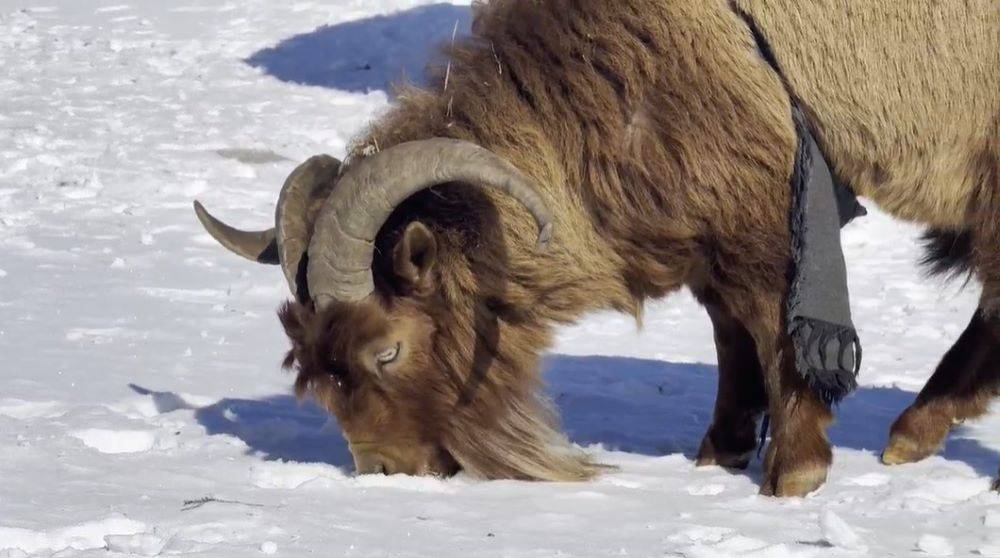
Response to the Dzud Natural Disaster
The year began with the devastating Dzud natural disaster, an extreme winter weather event that struck the Mongolian countryside from mid-January to the end of April. This event saw the loss of 7.44 million livestock, as shown in the Dzud Livestock Loss Report by the Ministry of Food, Agriculture & Light Industry of Mongolia (MoFALI), accounting for 11.50% of the country’s herds and affecting herders, wildlife, and local ecosystems. In response, the SFA mobilised immediately, appealing to all its members and partners for support. Through February and May 2024, the SFA Mongolia team launched two phases of relief efforts, distributing aid and provisions to 28 herding cooperatives in the hardest-hit eastern provinces. These efforts included providing nutritious grass hay bales and salt minerals to critical corridors for native herbivore wildlife, such as red deer, gazelle, and roe deer.
Thanks to the overwhelming generosity of our SFA Members and wider partners, over £153,000 was raised for the SFA’s Dzud emergency fund. This support enabled the SFA to establish a Community Development Fund, focusing on long-term recovery for herders affected by the Dzud and similar climate crises. Together we can enhance effectiveness, support socio-economic stability, and strengthen supply chain resilience against climate change.
“Long-term planning is crucial for strengthening disaster preparedness, risk management, and governance,” stated Una Jones, CEO of the SFA. “The impacts of climate change are intensifying, and it’s critical that we build resilient systems now to support herder communities in the future.”
Advancements in Standards & Global Collaboration
Throughout 2024, the SFA made significant advancements in its standards system, laying the groundwork for future growth and sustainability. The year saw the launch of the SFA Chain of Custody Standard v1.1, the SFA Assurance & Certification Manual v2.0, and the CAB Oversight Manual v1.1. These updates provided robust frameworks for ensuring sustainable practices across the industry.
A major highlight came towards the end of the year with the publication of the SFA Animal Fibre Standard v1.0 in December with an effective date of 1st April 2025. Originally titled the SFA Cashmere Standard v2.0, the evolution of the standard marked a pivotal moment for the SFA standards system after following a robust revision and consultation period from 2022 to 2024. With a focus remaining on the responsible production of cashmere fibre, this standard has been developed to allow the integration of other natural fibres in the future, including but not limited to camel, yak and horse hair. This unified approach ensures better support for herders and herding communities by covering diverse commodities within the SFA standards system. A Summary of Changes document was published alongside the SFA Animal Fibre Standard v1.0, providing detailed information on the changes to the standard and outlining how the current standard system differs from the new one, specifically highlighting where changes were driven or affected by feedback received through consultation.
Throughout 2024, the SFA has held consultations on a camelids scope expansion for the SFA standards system, reflecting the increasing recognition of the camelids’ role in global sustainability. The International Year of the Camelids, designated by the United Nations in 2024, underscored the importance of these animals in supporting livelihoods, culture, and environmental sustainability worldwide. In addition to this, the SFA has been working with sector partners and industry stakeholders as part of the Rangeland Stewardship Council (RSC) to co-develop a Camelid Standard as part of the Global Rangelands Standard framework to promote the responsible certification of fibre, meat, and dairy production, reflecting our commitment to supporting herders through comprehensive, unified standards.
Raising Awareness on the International Stage
In addition to standards development, the SFA actively participated in key global forums, fostering collaboration and dialogue across industries. In April, the Sustainable Natural Fibres (SNF) Global Conference in Beijing, organised in partnership with the International Cooperation Committee on Animal Welfare (ICCAW), brought together nearly 400 participants from diverse backgrounds to discuss traceability, animal welfare, and climate change.
At the beginning of September, the SFA Mongolia Conference in Ulaanbaatar focused on the impacts of dzud and strategies for sustainable practices, with over 130 attendees, from herders to government officials and international experts. The conference also included the highly anticipated Herder Sustainability Awards for 2024, recognising excellence in sustainable practices.
A significant highlight was the SFA’s involvement at the United Nations Convention to Combat Desertification (UNCCD) COP16 conference in Riyadh in December, where the Rangeland Stewardship Council (RSC) initiative was officially introduced to the global stage. The two-week event featured discussions on the impacts of desertification, land degradation, and drought, focusing on the importance of private-sector investment in rangeland restoration and the role of fashion brands in promoting sustainable practices.
A key takeaway included the reflection on the importance of connecting the land with the textiles sector, which was discussed in-depth during the Fashion4Land event on 4th December. The session underscored the fashion industry’s pivotal role in environmental sustainability and explored key policy frameworks and market-based mechanisms. Aligned with the event, the UNCCD published its “Fashion & Land: Unravelling the Environmental Impacts of Fibre” paper highlighting the virtues and challenges of specific fibre groups, including cotton and wool, and the crucial importance of fibre choice in the fashion industry.
“We often forget, what is the human impact of climate change. How can we support herders and communities? How can we support indigenous knowledge and wisdom in bringing change?” said Una Jones during the Fashion4Land panel discussion. “At the heart of how we [the SFA] support people is that we support herders and herding communities, empowering them and incentivising them in bringing effective land management and effective animal health welfare.”
This RSC is supported by the UNCCD, SFA and the Global Environment Facility-funded STELARR (Sustainable Investments for Large-Scale Rangeland Restoration) Project, which is implemented by IUCN and executed by ILRI and partners.
New Initiatives & Future Directions
The SFA’s initiatives throughout 2024 also set the stage for future impact through the announcement of new initiatives and partnerships.
We are excited to announce the appointment of Ian Whiteford as the new Chairman of the SFA Board, effective 2024. With a wealth of experience in certifications, supply chain management, chemical management, and sustainability in luxury brands, Mr Whiteford is poised to provide the leadership and strategic vision needed to propel the SFA into its next chapter of growth and success. Having travelled to Mongolia several times during his career, working to establish a traceable and sustainable cashmere supply chain with SFA-registered herders, Mr Whitefod has a deep understanding of the passion and commitment that drives and underpins the SFA’s work.

Ian Whiteford, second from the left, joined members of the SFA Board, CEO, Head of Standards & Project Manager during the NFC 2024 Conference in Biella, Italy.
“I know the skill, energy and enthusiasm that Una and all the staff bring to their work and I am delighted and honoured to be part of it,” said Ian Whiteford on his appointment as Chairman of the SFA Board.
In September, the SFA co-hosted the Natural Fibre Connect (NFC) Conference in Biella, Italy, exploring regenerative agriculture, policy impacts, and women’s empowerment within the natural fibre sector. This event was a vital space for dialogue between stakeholders across the cashmere, wool, alpaca, and mohair sectors. Extending conversations beyond the fibre industry, the SFA and RSC partners highlighted the benefits of the unified Global Rangelands Standard to support the world’s rangelands and those who rely upon them.
At the end of September, the SFA participated in New York Climate Week and was invited to join the closed group discussion on “Fashion Must Protect Our Farmers, Our Land & Our Communities”, which underscored the role of the natural fibre sector in addressing supply chain challenges and fostering collaboration among industry leaders.
In October, a two-day workshop was held in Nairobi, Kenya, to discuss the develop a Monitoring, Evaluation, and Learning (MEL) framework. This framework will be implemented alongside the RSC’s Global Rangelands Standard, providing a robust approach for monitoring the environmental, social and economic impacts of the RSC certification programme.
A key project for the SFA was the launch of Herder Connect: Empowering Animal Fibre Producers through Digital Tools, a two-year project funded by the SFA and ISEAL. In partnership with Khan Bank and the Nutag Action Research Training Centre (NARTC), the project includes real-time cashmere pricing, financial training, and expert advice on sustainable practices, ensuring herders have the tools they need to thrive in an increasingly complex market.
Having received a 5-month extension in 2024, the SFA Afghan Project has successfully trained over 5,000 Afghan farmers on the SFA standards system, 30% of which have been female herders. This has highlighted the critical role of women in sustaining livelihoods in conflict-affected regions. Set to continue making significant developments in 2025, the project aims to establish the infrastructure required for certification against the SFA’s Animal Fibre Standard and Clean Fibre Processing Standard.
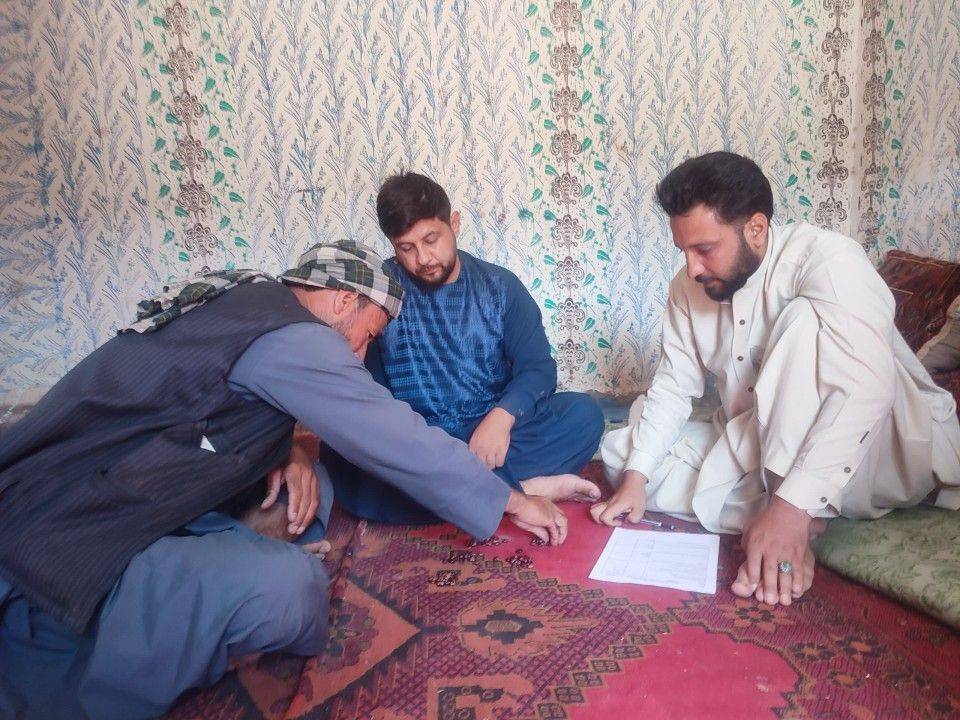
At the same time, the SFA Mongolia team partnered with the United Nations Food & Agriculture Organisation (FAO), as part of the Mountain Heritage & Sustainable Cashmere in Mongolia collaborative programme. Through this partnership, we have provided and co-funded training on the SFA’s Animal Husbandry and Rangeland Stewardship Codes of Practice to herding communities in Mongolia’s mountainous regions throughout 2023 and 2024.
Earlier in the year, ISEAL published a series of papers on “Measurement and monitoring for landscape jurisdictional approaches (2024)”. These papers included a pilot learning report that the SFA participated in throughout 2023 and 2024 to develop a biodiversity and nature-focused Monitoring, Evaluation & Learning (MEL) framework for the Mongolian rangelands.
Over the year, the SFA convened a group of rangeland social scientists to conduct a study on the resilience of Mongolian herding communities to dzud. This study will build on earlier research into dzud preparedness and identify how the SFA can build better systems to support herding communities holistically, accounting for environmental conditions, biodiversity, and social factors.
Conclusion
As 2024 draws to a close, the SFA reflects on a year marked by resilience, innovation, and collaboration. Thanks to the dedication of our partners, herders, members, and the wider community, we have made meaningful strides toward a sustainable future. We look forward to continued growth, collaboration, and impactful progress in 2025, as we work together to drive positive change in natural fibre value chains.
Here's to continued progress and collaboration in 2025!

Tamir Bud
SFA COMMUNICATIONS OFFICER
18 December 2024



